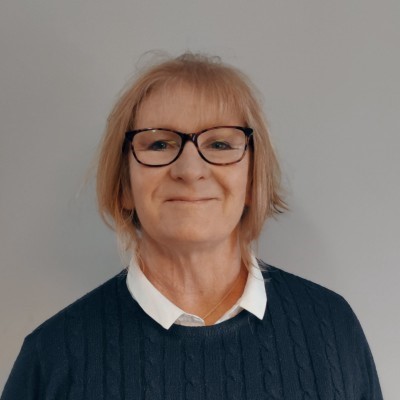Guest blog by Janet O'Neill, Deputy Head of the National School of Occupational Health
Before I entered occupational health (OH) I felt stagnant. As a school and agency nurse at the time, I focused on the next shift and not much else. Nurse accreditation and Continuing Professional Development (CPD) was not a requirement and, I am ashamed to say, I didn’t upskill or undertake any further training other than the essentials such as manual handling.
In 2002 I saw an advert for a part-time OH screening nurse, working for a small independent OH provider. Interest piqued, I applied. Following the interview, I was determined to get the job and told Dawn Knight, the recruiting OH Nurse, just this. She hired me and then gave me so much more. Setting that learning curve, she gave me a topic every few weeks to research and then discuss, whilst also teaching me the practical skills. It was a steep climb but one that lit my fire. I felt changed. I realised I was entering a career, not just a job.
Looking back, I feel blessed to have started OH as a screening nurse. I loved the different work environments, getting to know the different risks to health when undertaking health surveillance and the risks of health in safety critical assessments. I loved the people. Building rapport, finding out about their work, explaining the importance of looking after their health in and out of work, giving them their results and having a chuckle whenever possible. I made a difference. I particularly enjoyed being able to visit the workplace; being shown around or watching a particular task gave me an invaluable insight and enabled me to contribute to reducing risks.
OH facilitates continual learning. In OH, we learn so much about people, roles, tasks, risks, health conditions and more. Understanding how health affects work but also how work affects health creates learning opportunities. It is not possible to know everything and therefore research skills are important for evidence-based practice. Some of us become specialist in areas including rail, police, public sector, NHS, and manufacturing - building on our basic knowledge with new ways of thinking and becoming familiar with new standards.
Our learning is not just self-led, or mentor-led, although these are important avenues. That basic understanding is essential, and this is where OH courses come into play. The Faculty of Occupational Medicine (FOM) diploma in OH Practice was not available when I was studying OH, but Warwick delivered an OH diploma, run by Cynthia Atwell OBE. Our final assignment was a workplace needs assessment, reviewing risks and advising on change if needed. I identified colophony (electrical welding fume) as a risk; health surveillance was needed. When in place, I was able to identify an employee with signs of occupational asthma. This led to a review of the risk assessment by the factory and improved controls were put in place. Early identification for the employee reduced the risk of a long-term irreversible condition. Talk about making a difference!
As I moved further up in OH, undertaking more sickness absence management and more strategic support for employers, I realised that I still did not know enough. Although there were a few courses available, including the SCPHN-OH, I chose Nottingham University MSc in Workplace Health and Wellbeing. This gave me skills and tools to learn for myself, to horizon scan, to research and critique. Following on from higher level OH qualifications, there are further opportunities such as PhDs, MBAs etc.
OH makes a tangible difference to work and health. If you are looking for a career in OH, whether as a doctor, nurse, AHP, or as a technician, have a look and consider a mentor to guide and support your decision and if right for you – see Mentoring (ohcareers.info).

Janet O’Neill is Deputy Head of the National
School of Occupational Health, Head of PAM
Academy, Board Trustee at iOH, and
Occupational Health Nurse specialist.

